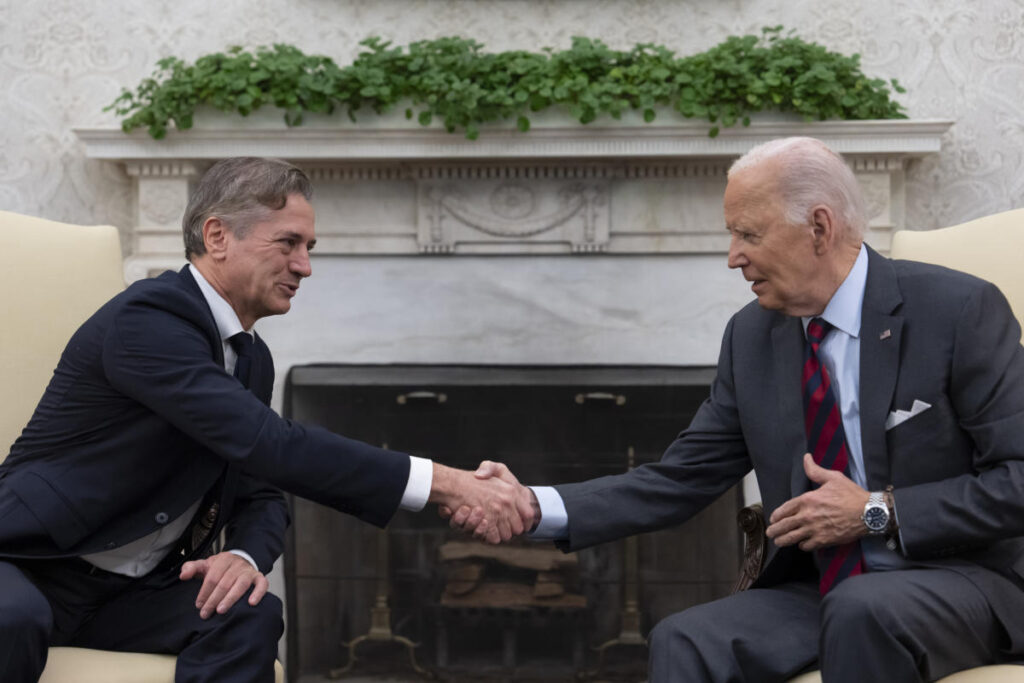President Joe Biden recently commended Slovenian Prime Minister Robert Golob for his instrumental role in a significant seven-nation prisoner swap that resulted in the release of three Americans from Russian jails. This exchange, completed in August, marks the largest U.S.-Russian prisoner swap since the Cold War, involving 24 individuals and extensive negotiations over several months. The deal required various European partners, including Slovenia, to make concessions by releasing Russian nationals in their custody, highlighting a collaborative diplomatic effort. During their Oval Office meeting, Biden expressed gratitude for Golob’s diplomatic efforts, emphasizing the critical role Slovenia played in making the swap possible.
Slovenia contributed to the swap by facilitating the release of two Russian spies, Artem Viktorovich Dultsev and Anna Valerevna Dultseva, who had been living undercover in Slovenia. Posing as Argentinians with a startup IT business and an online art gallery, the couple used Ljubljana as a base for operations linked to Russian intelligence activities across NATO and EU member states. Their arrest in 2022 highlighted the delicate nature of espionage dynamics in the region. Golob remarked that the successful negotiation demonstrated the power of international cooperation, stating that with the assistance of “true friends,” significant achievements can be realized.
Golob’s invitation to meet with President Biden in Washington makes him only the third Slovenian prime minister to receive such recognition, reflecting the importance of Slovenia in contemporary geopolitical issues. The last Slovenian leader to meet a sitting U.S. president was Janez Jansa with George W. Bush in 2006, underscoring the rarity of such high-level discussions. Additionally, former Prime Minister Borut Pahor met then-Vice President Biden in 2011, indicating that direct engagements between Slovenian leaders and U.S. presidents have been limited in recent years, making Golob’s meeting particularly noteworthy.
Among those released in the prisoner swap were Evan Gershkovich, a journalist for the Wall Street Journal, who spent 16 months in detention, along with Alsu Kurmasheva, a journalist for Radio Free Europe/Radio Liberty, and Paul Whelan, a former U.S. Marine arrested in 2018. The U.S. government condemned the charges against them, labeling them as politically motivated fabrications aimed at quelling dissent. The Kremlin also released Vladimir Kara Murza, a Russian politician and author, who had been imprisoned for his anti-war activism and criticism of the Russian government. The breadth of the swap highlights the complexities of international relations regarding human rights and diplomatic negotiations.
Biden reinforced the importance of alliances, indicating that the successful resolution of this prisoner exchange underscores the value of collaborative efforts among democratic nations. The meeting between Biden and Golob served not only to discuss the successful swap but also to address various pressing geopolitical issues, including the ongoing conflicts in Ukraine and the Middle East, energy security, and a unified approach to the challenges facing the Western Balkans. The diplomatic dialogues reflect a commitment to strengthening ties and addressing mutual concerns in a rapidly changing global landscape.
In addition to issues related to the prisoner swap, Golob has taken a strong stance against the violence in Gaza, publicly urging Israeli Prime Minister Benjamin Netanyahu to cease military operations and calling for an end to the bloodshed. His remarks at the United Nations reflected a growing concern regarding humanitarian crises and the responsibilities of global leaders. This meeting also followed Biden’s recent diplomatic engagement with German Chancellor Olaf Scholz, who facilitated the release of another Russian prisoner involved in the complex negotiation process, further illustrating the collaborative spirit among Western allies in addressing international crises. Through such negotiations, the global community’s responsiveness to humanitarian and political issues is profoundly demonstrated.

